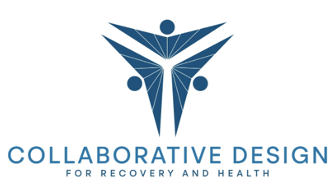
The impact of loneliness on health is similar to that of smoking 15 cigarettes a day.
A national survey of peer support specialists found loneliness was the number #1 unmet need of people with serious mental illness (SMI).
#1 Loneliness was identified as the leading unmet need among people with SMI. People with SMI experience loneliness at approximately twice the rate of the general population—due to impaired social skills, lack of opportunities to participate in social activities, and social stigma linked to mental illness. Loneliness is an often unrecognized social determinant of health that has serious implications for cardiovascular health and mortality. Loneliness is modifiable risk factor, and thus, a potential intervention target. Certified peer specialists recommended relationship building skills, which is an accepted strategy to address loneliness in people with SMI. As certified peer specialists potentially have lived experience with loneliness and relationship building skills to the world outside of the clinical mental health environment, they may be the ideal person to support consumers in addressing loneliness;however, limited research has been conducted on interventions that address loneliness among people with SMI.
#2 Social isolation was identified as the second unmet need among people with SMI. Addressing social isolation among people with SMI is of great importance to certified peer specialists. While loneliness and social isolation may be experienced side-by-side, they are not synonymous. Social isolation is when an individual has no physical connection to other members of society. A significantly higher proportion of people with SMI experience social isolation compared to the general population—commonly due to stigma, alienation, and loneliness. Social isolation reduces quality of life and also exacerbates physical health conditions. As health technology interventions such as virtual reality, asynchronous smartphone applications, anonymous text messaging are emerging as treatment options that rely on machine algorithms to interact with consumers, intervention researchers should consider the importance of human connection for people with SMI.
#3 Certified peer specialists prioritized the need to address co-morbid health conditions among people with SMI. Compared to the general population, adults with SMI are disproportionately impacted by medical comorbidities and have a decreased life expectancy of 11–30 years primarily due to these comorbidities. Addressing co-morbid health condition will simultaneously impact other unmet needs identified by certified peer specialists (i.e., early death, mental health hospitalizations, and physical health hospitalizations). Research in peer-supported integrated medical and psychiatric self-management has shown promising evidence of simultaneously addressing health behaviors that impact co-morbid health conditions.
#4 Certified peer specialists emphasized the importance of preventing drug use among people with SMI. Approximately 8% of people have a co-occurring mental health and substance use disorder. Further, people who have a lived experience of SMI are significantly more likely to smoke cigarettes, use illicit drugs, misuse opioids, and binge drink compared to people without SMI. It is important to understand the complexities and interactions of multiple co-morbidities to ensure optimal outcomes. As such, research on “whole health” for people with SMI may advance to integrate mental health, physical health, and substance abuse.
Certified peer specialists’ identified important unmet needs of people with a lived experience of a SMI within the context of their own socio-physical environments. Certified peer specialists highlighted unmet needs of people with SMI that have historically been under-researched, yet are of great importance. Initial insights from this study can be used to guide researchers’ efforts to incorporate certified peer specialists perspectives in developing programs to meet the needs of people with SMI. As the movement to include certified peer specialists in the co-production of research in partnership with scientists is gaining momentum, future research using participatory research methods such as the Peer Support Specialists-Academic Partnership can further examine these initial insights.
*We received permission from the authors to take text from national survey of peer support specialists

